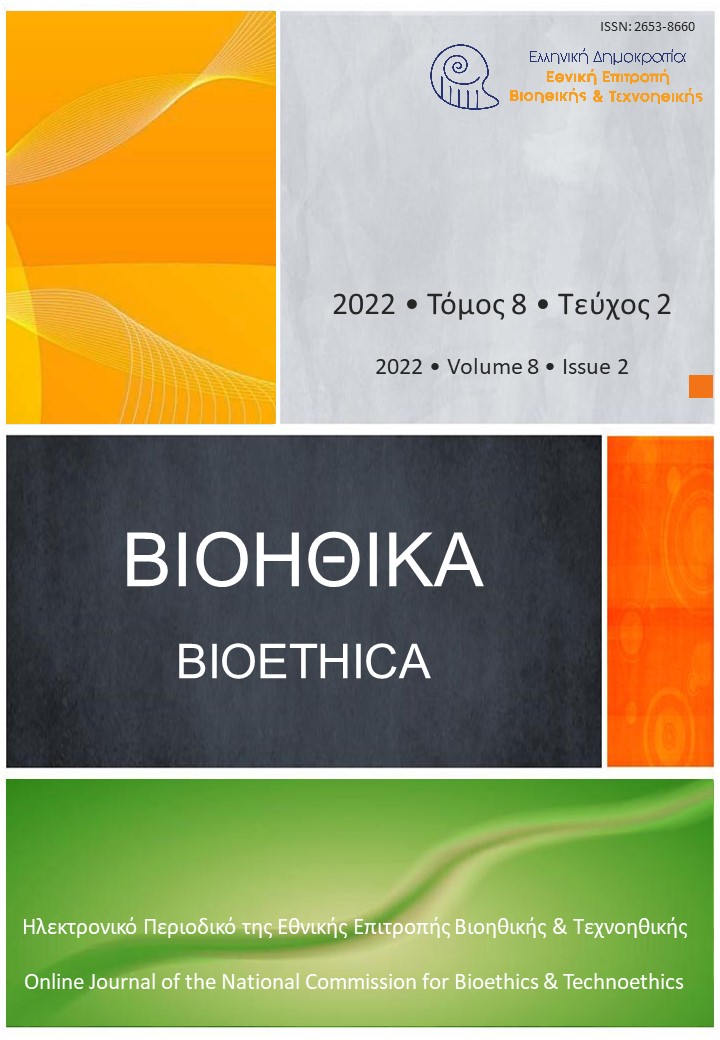Ethical issues from interoperability in electronic health records

Abstract
The adoption of electronic systems in healthcare through Information Systems Technologies (ICT) has led to an increase in the quality of health care provided, the creation, collection, transfer and storage of healthcare data as well as their retrieval by authorized health professionals. The use of ICT leads to the reduction of medical errors, the reduction of costs, the immediate retrieval of data at any time and at any point and finally to the satisfaction of patients. The transfer of patients between different health care providers leads to the need for electronic means of recording examinations and reports so that they can be retrieved whenever necessary. The interoperability of information systems with each other for timely access to patient information such as Personal Electronic Patient Record (AHFY) containing information such as history, diagnoses, medical and imaging examinations is considered necessary for data security.
However, many ethical challenges arise such as the confidentiality of data traffic, access control and retrieval, invasion of privacy, storage, preservation and distribution of data.
The discussion and recommendations that should take place concern the informed consent of patients and the right to autonomy, the security of personal data through the General Regulation of Personal Data (GDPR-Law 2016/679), Quality Assurance and planning safe and integrated interoperability of healthcare systems and how they can be addressed.
Article Details
- How to Cite
-
Chasiotis , I., & Chasioti, E. Z. (2022). Ethical issues from interoperability in electronic health records. Bioethica, 8(2), 24–46. https://doi.org/10.12681/bioeth.31778
- Section
- Original Articles

This work is licensed under a Creative Commons Attribution 4.0 International License.
Authors who publish with this journal agree to the following terms:
- Authors retain copyright and grant the journal right of first publication with the work simultaneously licensed under a Creative Commons Attribution CC BY 4.0 License, which allows for immediate free access to the work and permits any user to read, download, copy, distribute, print, search, or link to the full texts of articles, crawl them for indexing, pass them as data to software, or use them for any other lawful purpose. Appropriate credit must be given by citing the author(s) and the original publication in this journal.
- Authors are able to enter into separate, additional contractual arrangements for the non-exclusive distribution of the journal's published version of the work (e.g. post it to an institutional repository or publish it in a book), with an acknowledgement of its initial publication in this journal.
We encourage authors to deposit their articles, as well as data underlying the publications, in institutional and/or other appropriate subject repositories.
Bioethica permits and encourages authors to archive the final publication pdf in institutional (e.g. the repository of the National Hellenic Research Foundation) or other appropriate subject repositories (e.g. SSOAR repository for social sciences), in compliance with institutional and/or funder open access policies, after publication in the BIOETHICA. Authors must provide bibliographic details that credit publication in the journal, as well as related funding details (when applicable).
Lists of institutional and other subject-based academic open access repositories can be found listed by country at the registry http://opendoar.org/countrylist.php
If your institution does not possess a repository you may deposit a copy of your paper at no cost with www.zenodo.org , the repository supported for open access research in the EU by the European Commission, through the project OpenAIRE (www.openaire.eu )


